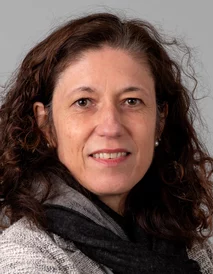Victims of Trafficking for Sexual Exploitation as Members of a ‘Particular Social Group’ under the Refugee Convention
by Iulia Mirzac and Katia Bianchini
Question(s) at stake
Whether “former victims of trafficking” and “former victims of trafficking for sexual exploitation” can be members of a “particular social group” (PSG) under the Refugee Convention. Whether the appellant is at risk of persecution in Moldova based on membership in such a group.
Outcome of the ruling
“Former victims of trafficking” and “former victims of trafficking for sexual exploitation” can form a PSG under the Refugee Convention. The shared background or experience of having been trafficked is an immutable characteristic that can identify the members of the group. Additionally, in order to qualify for a PSG, the group members must be “perceived as being different by the surrounding society” (para 106).
In the context of Moldovan society, the appellant is a member of a PSG, as a former victim of trafficking for sexual exploitation and would be at real risk of persecution by reason of such membership.
Country:
United Kingdom
Official citation
SB (PSG – Protection Regulations – Reg 6) Moldova CG [2008] UKAIT 00002
Topic(s)
Keywords:
Gender based persecution
Grounds/Reasons of persecution
Membership of a particular social group
Real Risk of persecution
Refugee status
Trafficking
Tag(s):
Discrimination
Bibliographic information
Mirzac, Iulia; Bianchini, Katia (2023):
Victims of Trafficking for Sexual Exploitation as Members of a ‘Particular Social Group’ under the Refugee Convention,
Department of Law and Anthropology, Max Planck Institute for Social Anthropology, Halle (Saale), Germany,
CUREDI041UK002,
https://doi.org/10.48509/CUREDI041UK002.
About the authors
Iulia Mirzac (Birmingham Law School, University of Birmingham)

Doctoral Candidate at the University of Birmingham carrying out ESRC-funded research on judicial interpretations of undefined concepts within the UK anti-trafficking framework in England and Wales. Teaching Associate on the 'Decolonising Legal Methods' module at Birmingham Law School. Research Consultant at the Max Planck Institute for Social Anthropology, providing legal commentaries of asylum decisions based on gender-based violence published under the Institute's CUREDI database.
Katia Bianchini (Max Planck Institute for Social Anthropology, Department Law and Anthropology, Germany)


Katia Bianchini is a Research Fellow of the Law and Anthropology Department of the Max Planck Institute for Social Anthropology in Halle. She holds a law degree from the University of Pavia (Italy), an LL.M. in Comparative Laws from the University of San Diego (California, USA), and a Ph.D. in Law from the University of York (UK). Her doctoral thesis provided an empirical and legal analysis of how the 1954 UN Convention relating to the Status of Stateless Persons is implemented in ten EU states. She has also worked as a Post-Doctoral Researcher at the Max Planck Institute for the Study of Religious and Ethnic Diversity (Göttingen). Before engaging in research, she practised immigration and refugee law for ten years in the UK and the USA.
Bianchini has published in the field of refugee law, statelessness, and the rule of law in the context of sea migration. Her current research builds on her expertise in human rights and Italian law and looks at the treatment of deceased sea migrants in the South of Italy.
